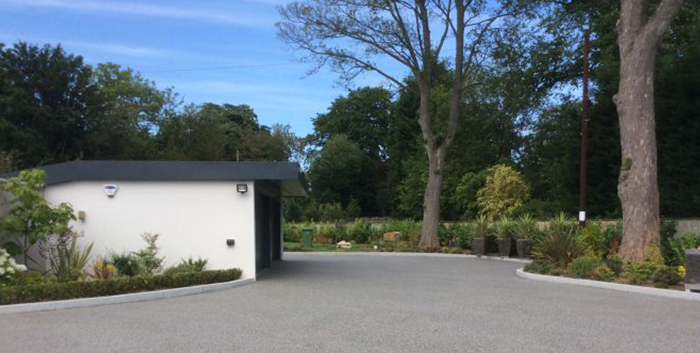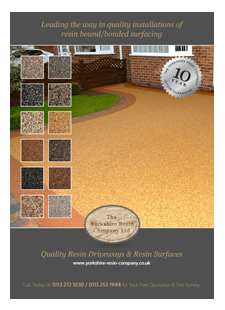Resin Bound or Resin Bonded
Resin driveways are a relatively new innovation in the UK and, as decorative driveways go, they offer a truly stylish option. However, as with all new technologies, it pays to know what you’re dealing with when it comes to installing a resin driveway at your home. There are two common different methods to create this particular driveway – resin bound and resin bonded. In this article, we'll explore the differences between them both.
Resin Decorative Driveway Basics
Resin driveways are created using, yes, you guessed it, resin, and also aggregates. Gravel driveways have long been one of the more attractive options when it comes to our drives. Colour, texture and pattern can be created and they offer a much better-looking option than plain but serviceable concrete or tarmac.
The main problem with gravel is that it's high maintenance and prone to movement over a relatively short space of time. Resin bonding is a great solution to both of these problems!
Resin Bound or Bonded?
Resin bonded and resin bound are fairly simple terms to get your head around, they both refer to the way in which the aggregate is 'glued' together with clear resin mixtures. Bonded simply means that a layer of resin is spread over the surface and then aggregates are brushed over the resin, which bonds them to the surface. Once the resin has set the gravel is firmly 'glued' in place and any excess is simply brushed off. The surface helps to inhibit weed growth and keeps the gravel in place once and for all.
Resin bound surfaces are created using a different approach – in this case, the aggregates are mixed with the resin prior to application. This method coats individual stones with resin, rather than simply glueing them to the ground.
Choosing Resin Bound or Resin Bonded
Both bound and bonded decorative driveways offer an extremely hard-wearing, slip resistant, weed, resistant and very attractive finish. Bonded surfaces have one distinct advantage, however, in that they allow water to flow through the drive surface and drain away. Bonded resin doesn't do this, which means that it's important to get your installer to create enough of a camber (slope) to allow water to flow to drains, rather than pooling.
Resin bonded aggregates are also the least susceptible to movement (the strong bond stops individual stones loosening and disappearing) whilst bonded aggregate may be slightly more prone to stones coming loose – particularly if they are poorly installed. Whichever type of resin surface you choose, the sheer practicality and good looks make it the perfect covering for your decorative driveway.
All project requirements are different, therefore Yorkshire Resin provide a site survey and quotation FREE of charge. Get a Free Quote!



